Latest Posts
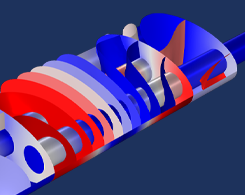
Generating Microsoft® PowerPoint® Slideshows from Your Models
Did you know that you can generate slideshow presentations of your model results in the Microsoft® PowerPoint® format as of COMSOL Multiphysics® version 5.6?
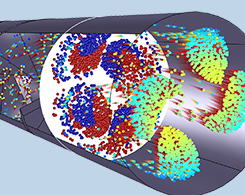
What Formulation Should I Use for Particle Tracing in Fluids?
The COMSOL® software gives you 4 equation formulation options when modeling particle tracing in fluids: Newtonian; Newtonian, first order; Newtonian, ignore inertial terms; and Massless.
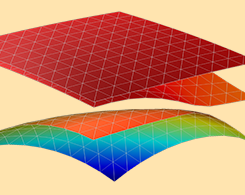
k • p Method for Strained Wurtzite GaN Band Structure
Model a wide range of semiconductor systems, such as particles with spins and strained wurtzite crystals, using multicomponent wave function functionality in the Schrödinger Equation interface.
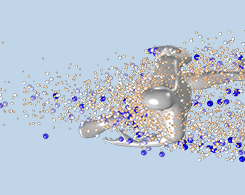
Modeling Droplet Flow in an Open Space with COMSOL Multiphysics®
If you are jogging six feet apart from someone else, should you both be wearing masks? Simulation was used to analyze the motion of particles between two runners in an open space to find answers.
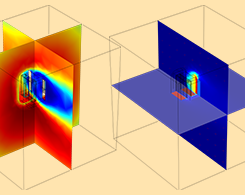
Designing Inductors with a Simulation App at Bombardier Transportation
Every day, 500 million passengers in 200 cities and 60 countries ride a train featuring Bombardier Transportation products. See how apps help speed up the design process for a train component…
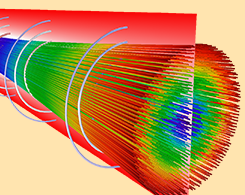
Modeling a Pierce Electron Gun in COMSOL Multiphysics®
Cathode ray tubes, electron microscopes, spectrometers, and particle accelerators: These devices and components commonly use Pierce electron guns.
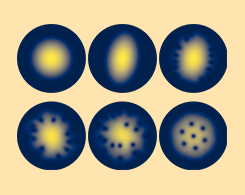
Model Vortex Lattice Formation in a Bose–Einstein Condensate
Bose–Einstein condensation can cause superfluidity, superconductivity, lasers, and trapped dilute cold atoms. When such systems are subjected to rotating perturbation, it forms a vortex lattice.
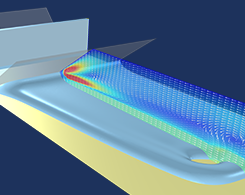
COMSOL Multiphysics® Version 5.6 Is Now Available
COMSOL Multiphysics® 5.6 brings faster solvers, enhanced graphics, and 4 new products: the Fuel Cell & Electrolyzer, Polymer Flow, and Liquid & Gas Properties modules and LiveLink™ for Simulink®.

Happy Birthday, Marie Van Brittan Brown
Today, home security is a billion dollar industry that relies on smart devices. However, it all started with a nurse who wanted to feel safer in her home in Queens, New York.
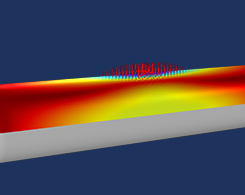
Accelerating Model Convergence with Symbolic Differentiation
Whenever you set up and solve a nonlinear problem in COMSOL Multiphysics, a symbolic differentiation engine is automatically used to ensure high robustness and accelerate model convergence.
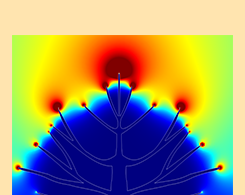
It’s a Bird, It’s a Plane, It’s…Gravity-Defying Spiders!
Spider ballooning, in which spiders float for miles, was originally observed by Charles Darwin in 1832. Since then, researchers from University of Bristol used simulation to study this effect.
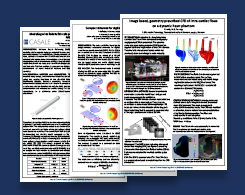
Best Papers and Posters from the COMSOL Conference 2020 Europe
From antennas for digital TV reception to packed bed reactors for steam reforming, the 9 Best Paper and Best Poster award winners from the COMSOL Conference 2020 Europe cover a variety of topics.
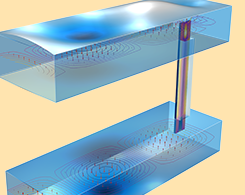
3 Examples of Modeling Transitions for Rectangular Waveguides
Waveguide to planar, coaxial to waveguide, and rectangular to elliptical: These 3 different transitions for rectangular waveguides can be modeled using COMSOL Multiphysics® and the RF Module.
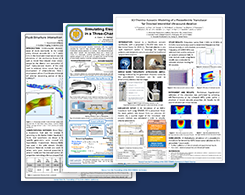
Best Papers and Posters: COMSOL Conference 2020 North America
MEMS microphones, inductors, thermal ablation, and the Navier–Stokes equations are just a few of the topics featured in the top papers and posters from the COMSOL Conference 2020 North America.

Happy Birthday, Henry Cavendish
Did you know that the element hydrogen was originally called “inflammable air” upon its discovery by Henry Cavendish because of how easily it burns? Learn more about the chemist and physicist…
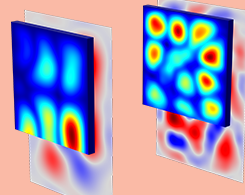
Modeling Sound Transmission Loss Through a Concrete Wall
The sound loss transmission (STL) through a building component is the logarithmic ratio between the total incident power on the structure relative to the total transmitted power.
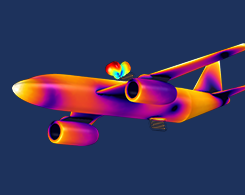
How to Create High-Quality Model Images in COMSOL Multiphysics®
Whether you’re including model images in a presentation, article, paper, or on the web, you want them to be high quality. These guidelines for image creation can help.
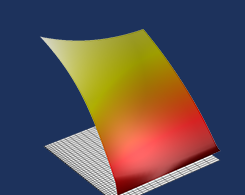
Equation-Based Modeling with a Space-Time Discretization
In COMSOL Multiphysics®, almost any expression in a computational model can be modified. For example, using a space-time discretization can make optimization problems easy and fast to implement.
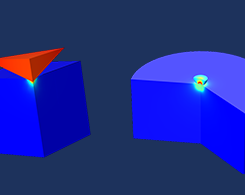
Exploring the Ambiguity of Hardness Numbers with COMSOL®
To help customers easily obtain stress-strain curves from indentation test data, this guest blogger turned to simulation applications and COMSOL Compiler™ — and created a brand new product.
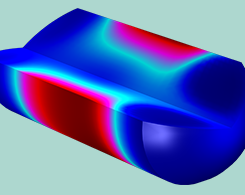
The Growing Use of Simulation in Pharmaceutical Development
Did you know that the development cycle of a drug can take years and cost millions of dollars? Simulation is 1 way to make pharmaceutical development processes faster and more cost effective.
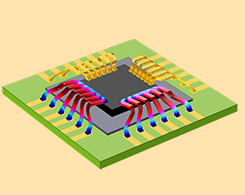
Course: Modeling Joule Heating with Thermal Expansion
Get an overview of the course on Joule heating and thermal expansion. Plus, access supporting material.
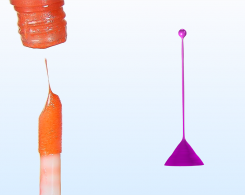
How Does This Lip Gloss Appear to Defy Gravity?
We attempt to explain a mysterious, gravity-defying phenomenon involving a viral video, dielectric materials, electrostatics, and lip gloss.

Implementing a Damage Evolution Law for a Hyperelastic Material
By implementing a physically motivated damage evolution law for a hyperelastic material, you can incorporate material softening, creep, and stabilization of hysteresis curves during cycling.

Estimating Hyperelastic Material Parameters via a Lap Joint Shear Test
For rubber, polymers, and biological tissue, the relationship between stress and strain is nonlinear, even at small loads. The lap joint shear test can be used to determine material properties.



